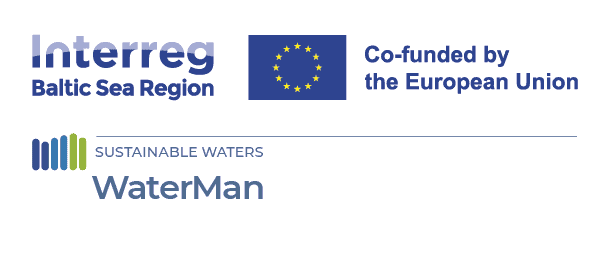
Dialogue Forum and meeting of WaterMan project partners in Rønne
17 November 2023
On November 7-9, 2023, an event was held as part of the WaterMan project in Denmark. The event was divided into two parts. One was dedicated only for project partners, while the second part was open to others interested in the project topic or those who wanted to share their good practices.
7th of November
The first day began with a welcome to the participants by the project leader from the Kalmar Region and the host from Bornholm’s Water and Bornholm’s Wastewater.
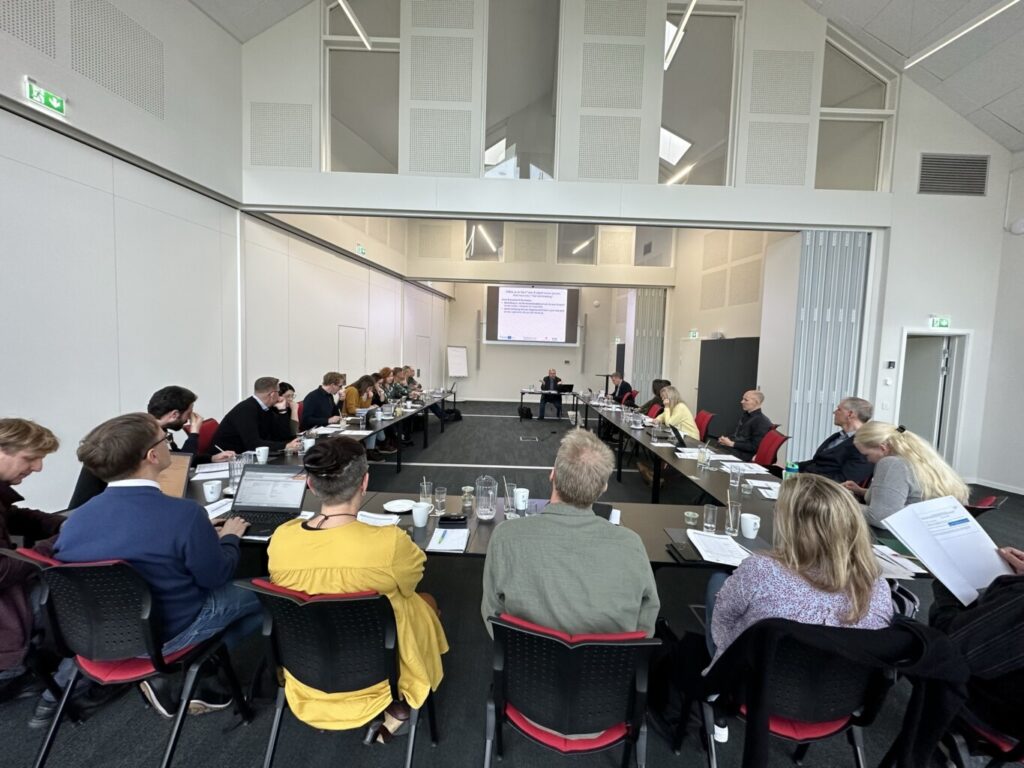
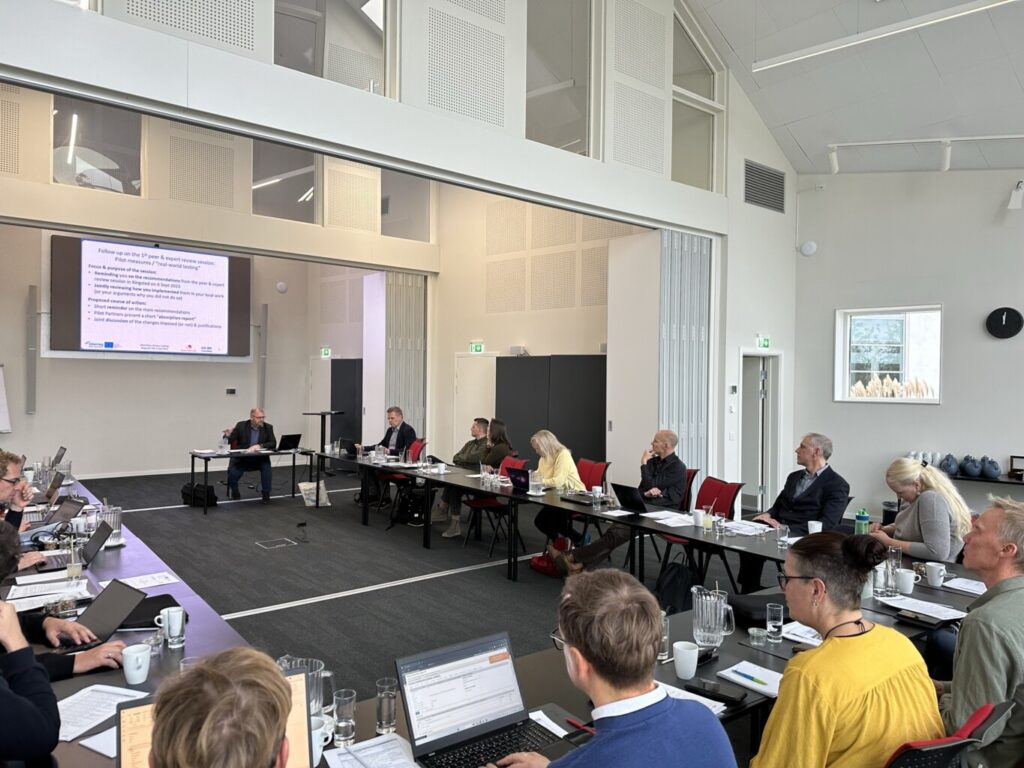
Activities concerning the pilots were discussed after welcoming participants and more specifically the partners responded to the questions and comments from the session discussed in Kalundborg. Each partner presented their situation and addressed what from the previous comments is possible and what will not be done after analysis. The main question was whether it is possible to use water of a lower class for the pilots. An example was the use of water for watering urban greenery or cooling in combined heat and power (CHP) plants. The most important factor is the cost of water, e.g. drinking water, which is much cheaper than purified water.
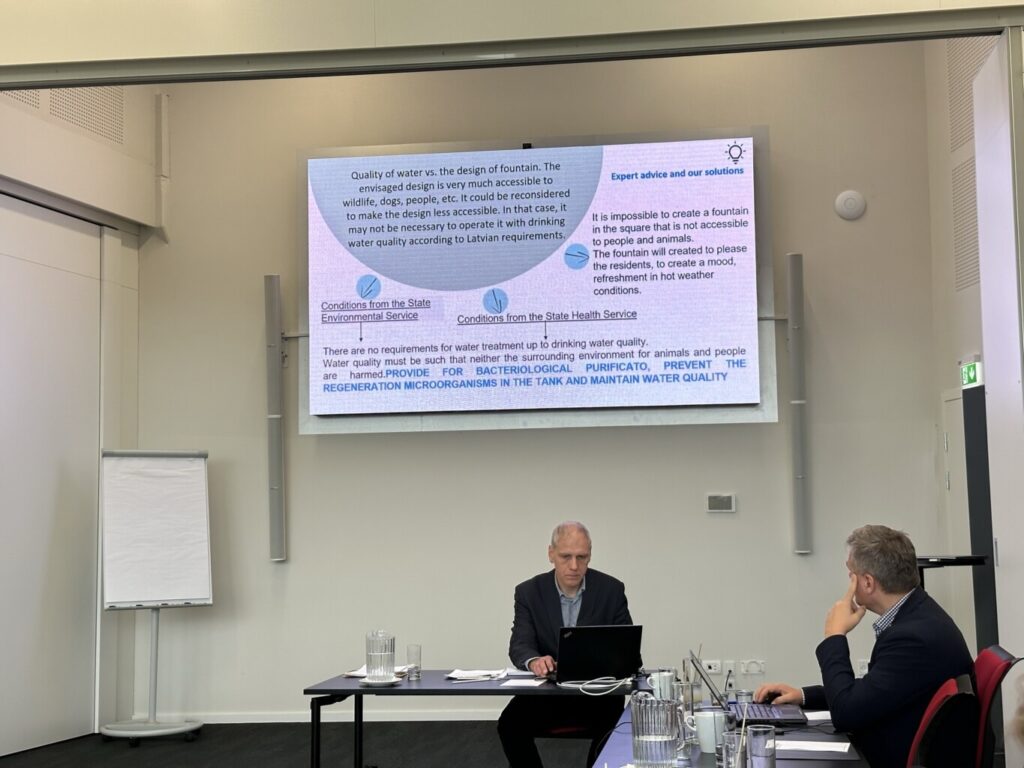
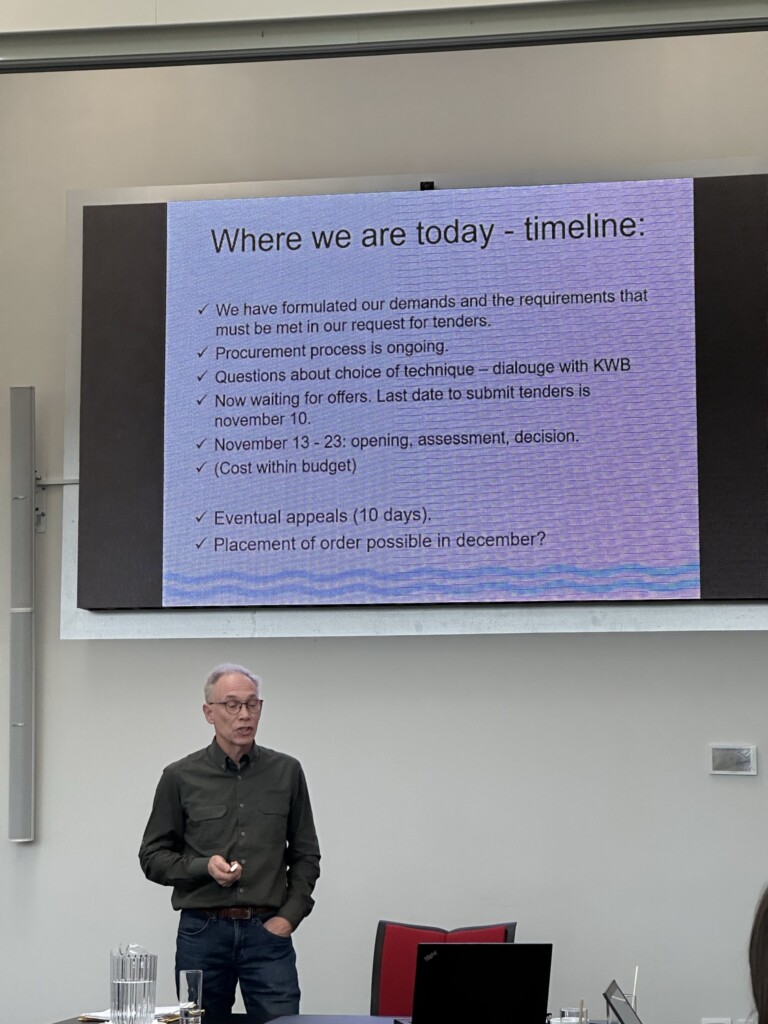
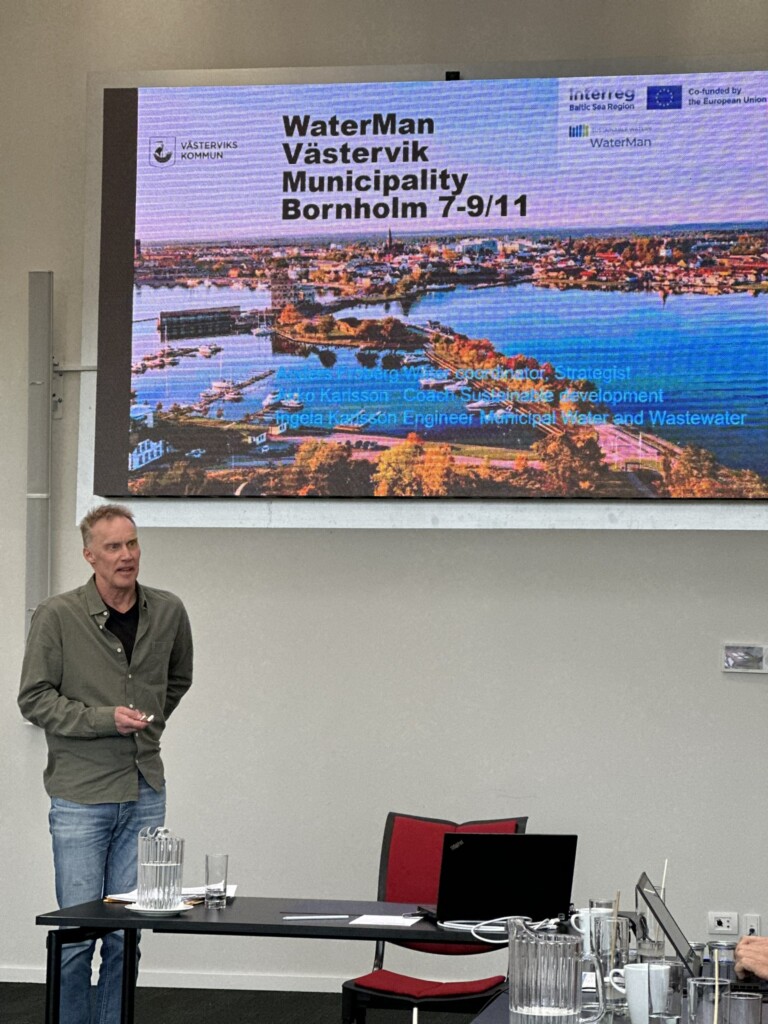
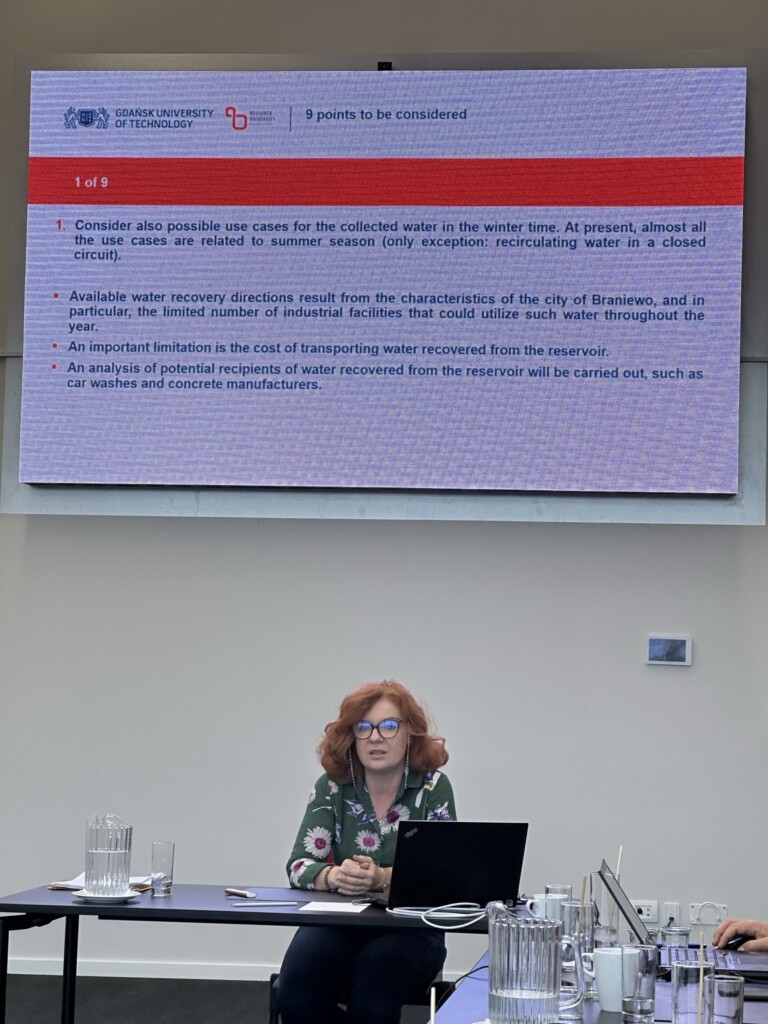
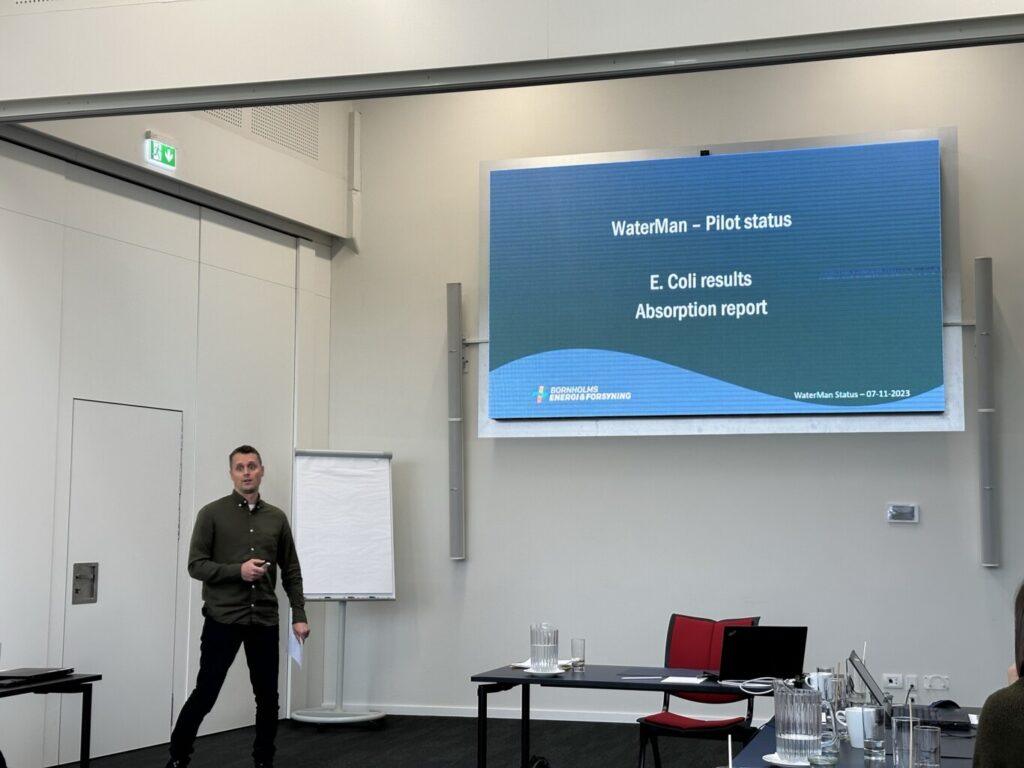
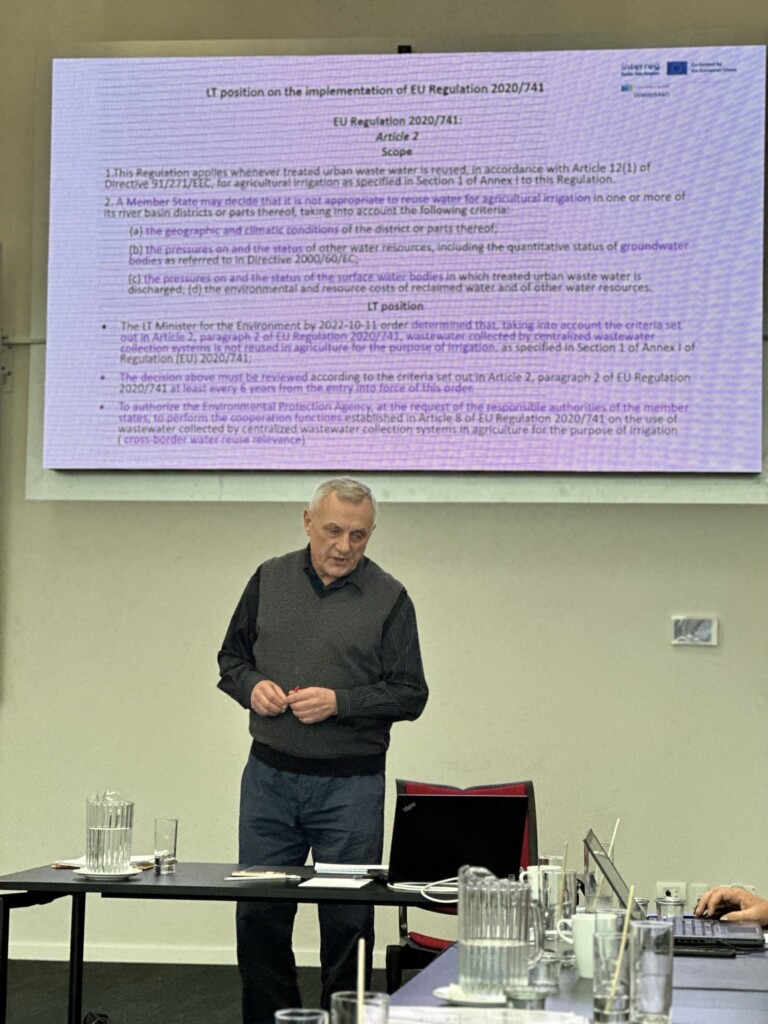
The second part of the day was devoted to a study visit to three sites selected by the Danish Partner on which was invited also external participants. Among others visited were:
1. Svaneke Wasterwater Treatment Plant (WWTP)
2. Farmer in Svaneke that plans to reuse water from the WWTP for irrigation
3. Exhibition about “Energy Island Bornholm” at Elværket in Rønne
The sewage treatment plant in Svaneke is also the site of a pilot run by a partner from Denmark. Participants were able to see a prototype of the pilot, which in a few months will stand on the pilot scale a few meters away. The pilot is testing various possibilities for filtering water through selected types of sand. A nature-based (low-tech) method was chosen to test the possibility of filtration of water from locally available resources.
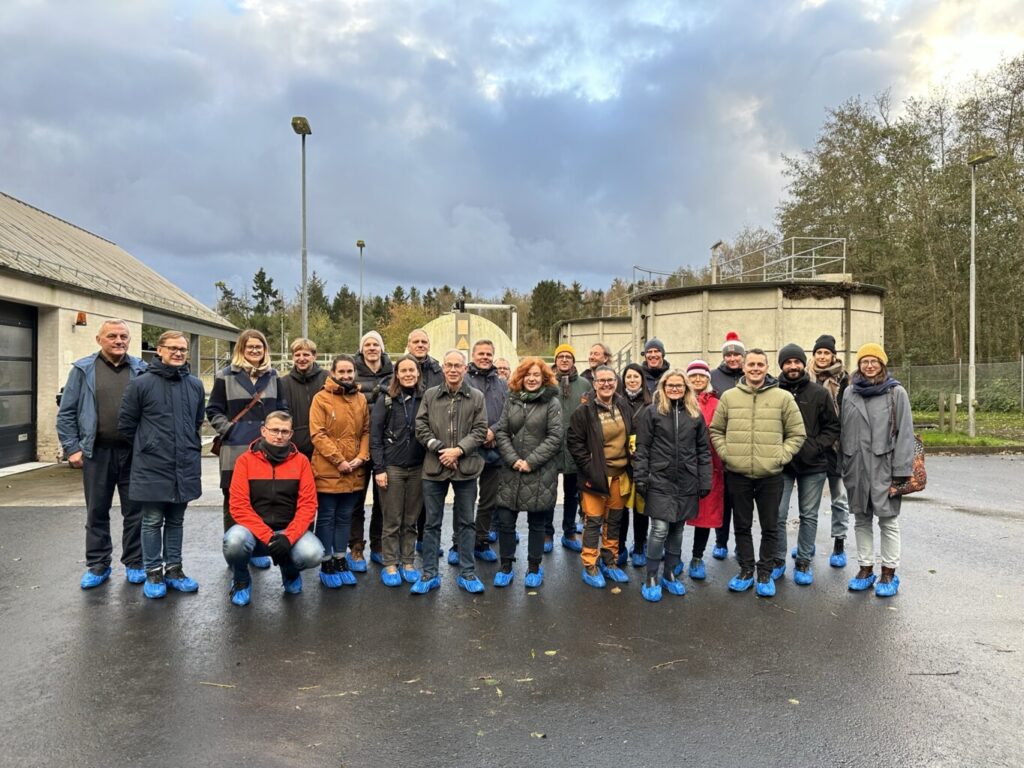
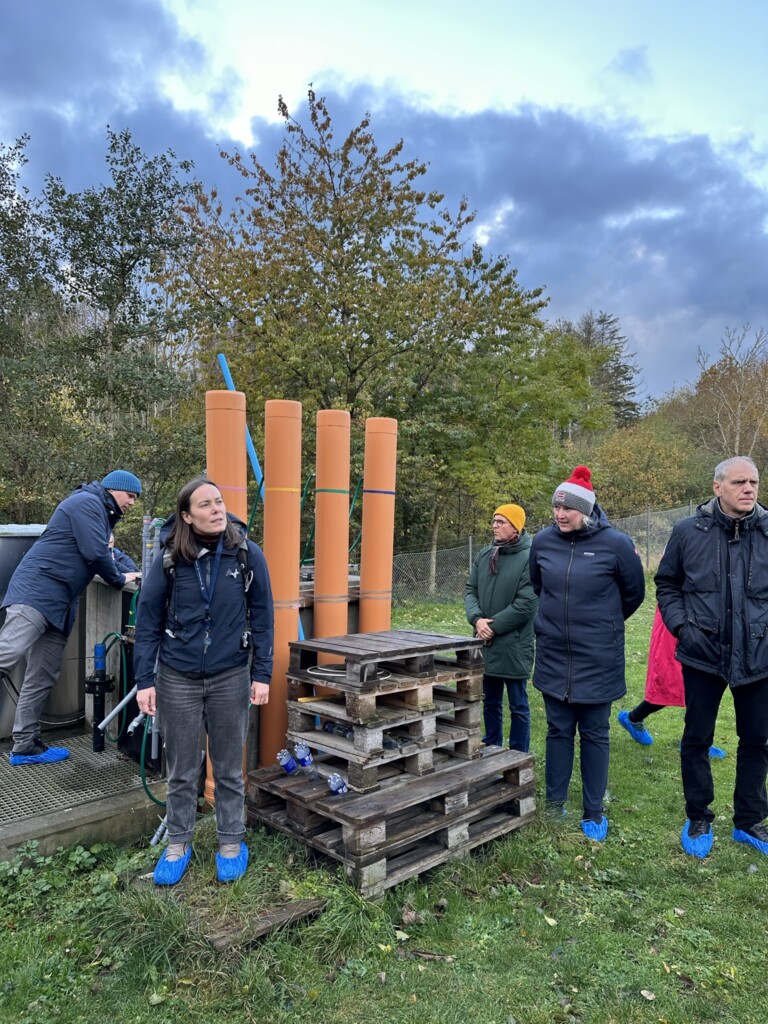
A farm in Svaneke would like to use reclaimed wastewater and from the sea to irrigate crops. This farm is trying to receive such approval to be able to water crops with these types of water. It is interesting to note that the farm has high demand and its crops have bio status.
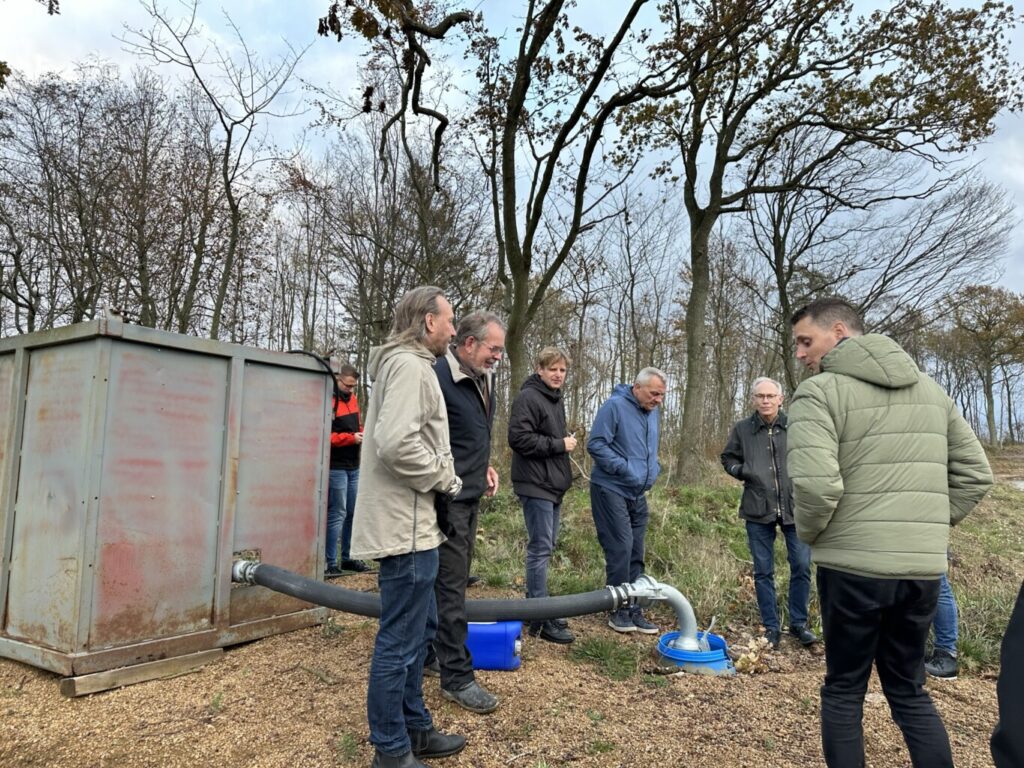
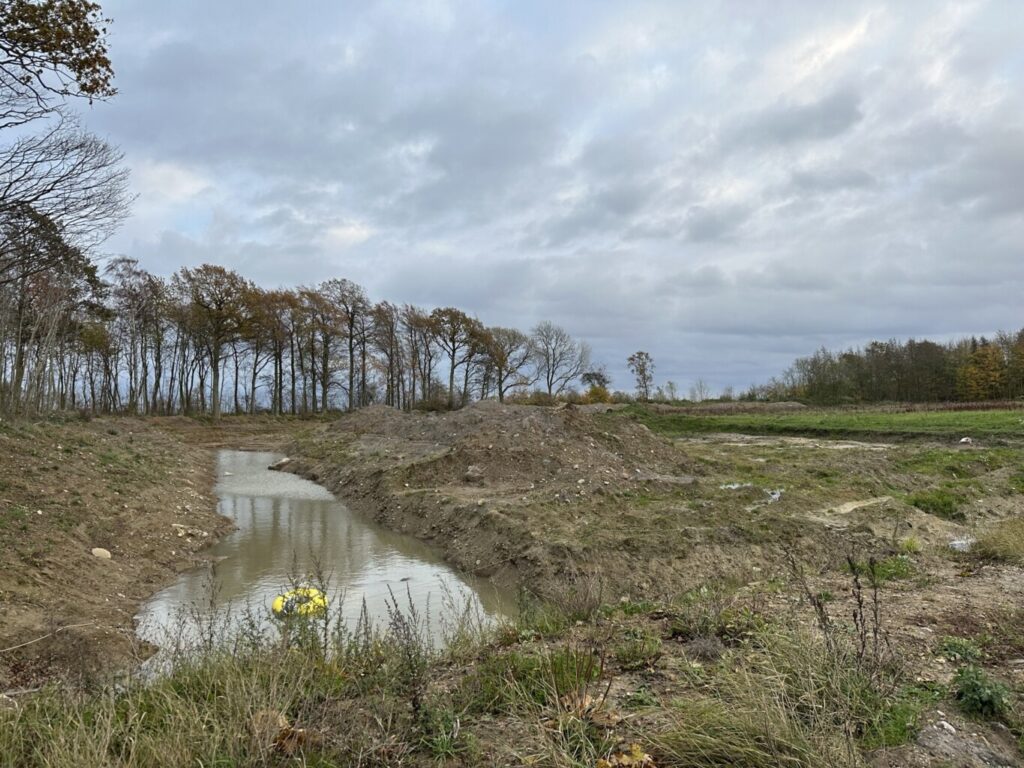
Participants took part in an exhibition in Ronne on the island as an “Energy Island Bornholm.” By 2030, the island of Bornholm will achieve the status of an island that will be self-sufficient in energy and will be able to resell the excess energy produced from renewable sources. The peculiarities of Bornholm make it possible to test various solutions that can later be translated into the rest of the country. The exhibition presents plans and how the island will look after the changes.
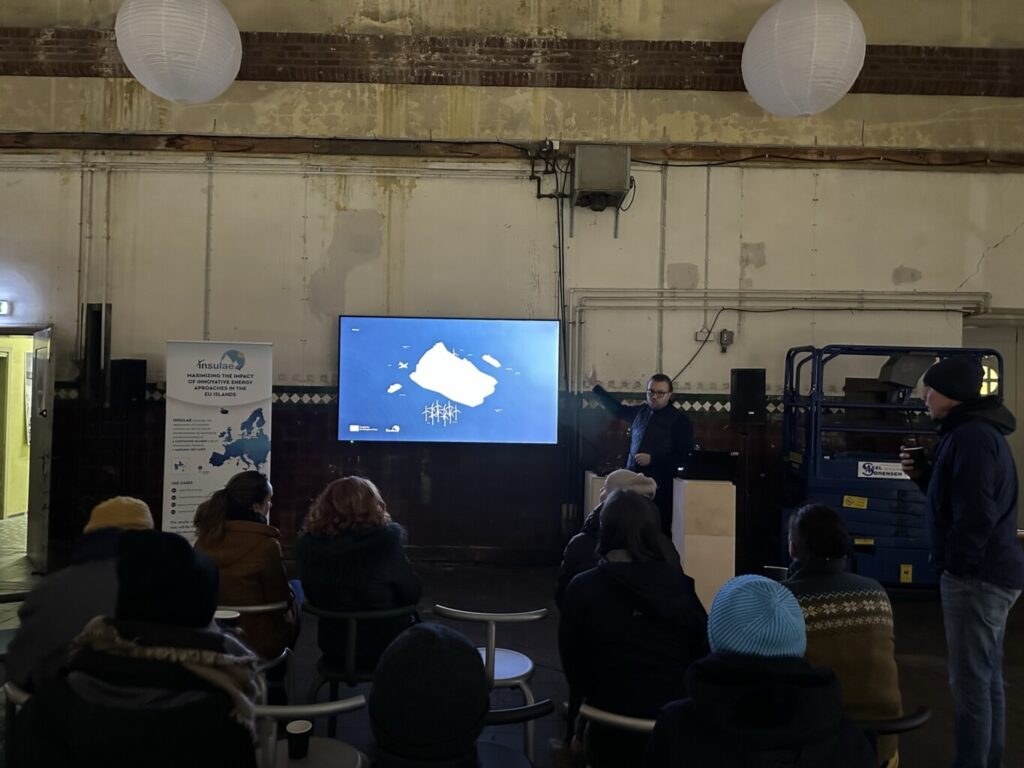
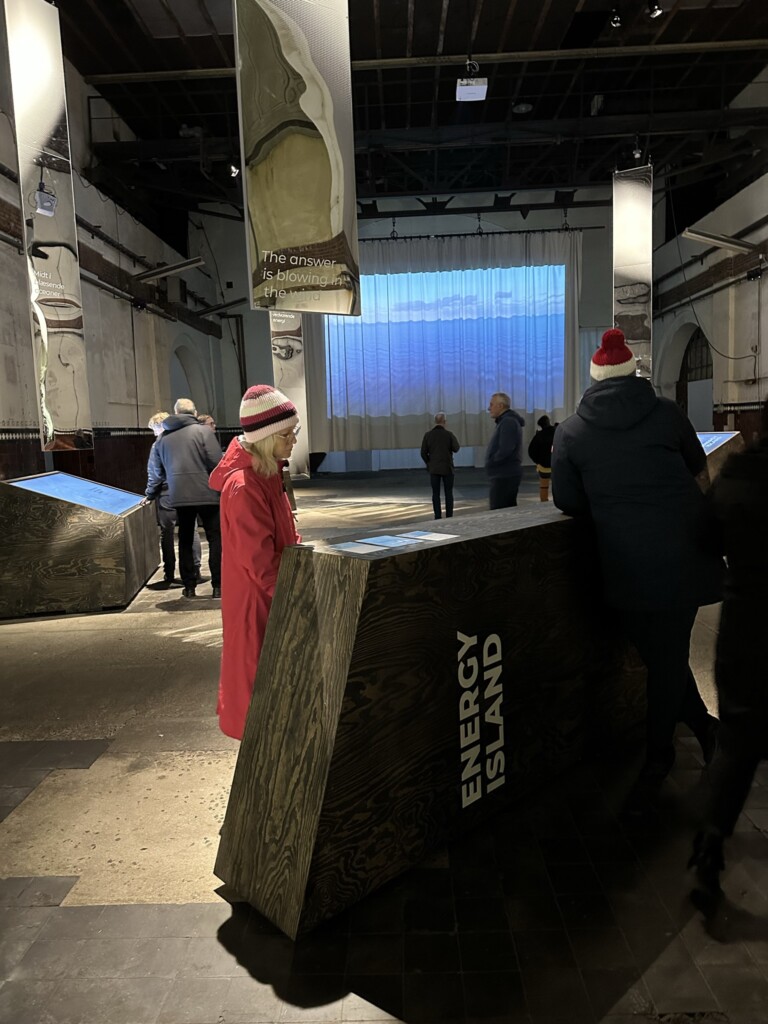
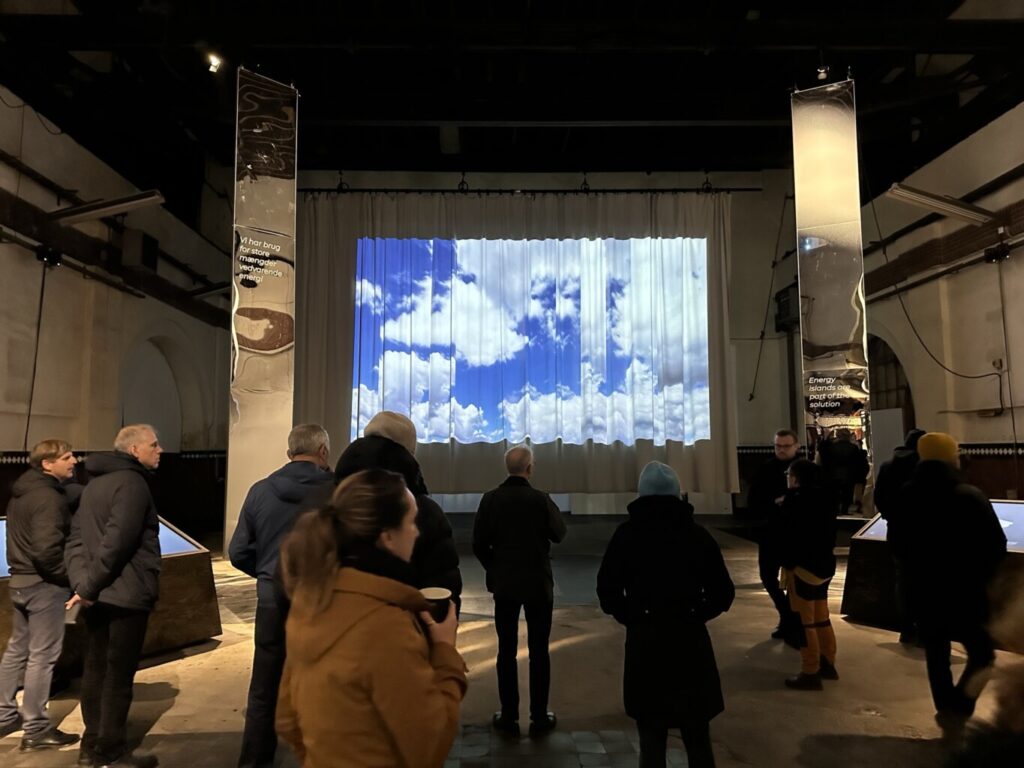
8th of November
The second day was open to external participants in connection with the Dialogue Forum “Potentials and Challenges of Water Reuse in the Baltic Sea Region”. All guests as well as project partners were welcomed by the host from Bornholm’s Energy and Utility Company and the Chair of the ERB Water Core Group.
During the Forum, invited guests imparted their knowledge on the topics of water, where, among others, they spoke:
- Claus M.Andersen of Bornholms Energi and Forysning, which provide water, heating and produce energy. Between 2030 and 2032, they plan to erect 3 wind farms, from which they will send the energy they produce to Germany and Denmark. Potential uses for the energy is H2 production – a process that requires high amounts of water. This and the potential effects of climate change put pressure on the water sources of Bornholm and alternative water sources are needed. Here, municipal wastewater appears to be an option since treating wastewater is more economical than desalination of baltic seawater.
- Erik Kjellstrom discussed the topic of climate projections for the Baltic Sea Region, in which he talked about climate change in terms of lack of water and increased temperatures, which is affecting droughts but also periodic heavy rainfall events.
- Marie Raffin spoke about water reuse in the Baltic Sea Region, her organization and how they recycle water for example for industrial purposes but also for residential and commercial uses. The problem is common laws or regulations and the lack of acceptance by authorities as well as residents to use treated water.
- Manuel Boluda Fernandez – Coexistence with water scarcity in Murcia Region. In Spain, water scarcity poses a great challenge, in particular during the summer season when water availability is low, and at the same time, water consumption peaks due to irrigation needs. It is a great challenge to convince people that reclaimed municipal wastewater is suitable and safe to use. Spain has big problems with these water sources, which are decreasing every day. We should focus on creating appropriate policies and talking to residents to create awareness for the safe and appropriate use of alternative water sources.
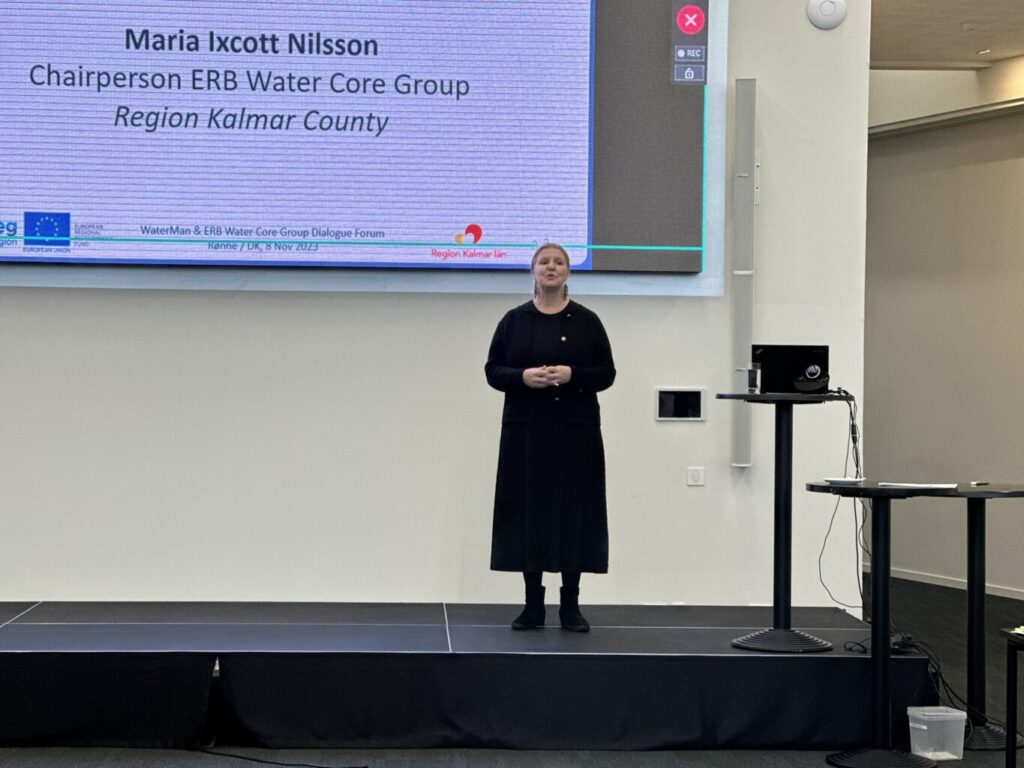
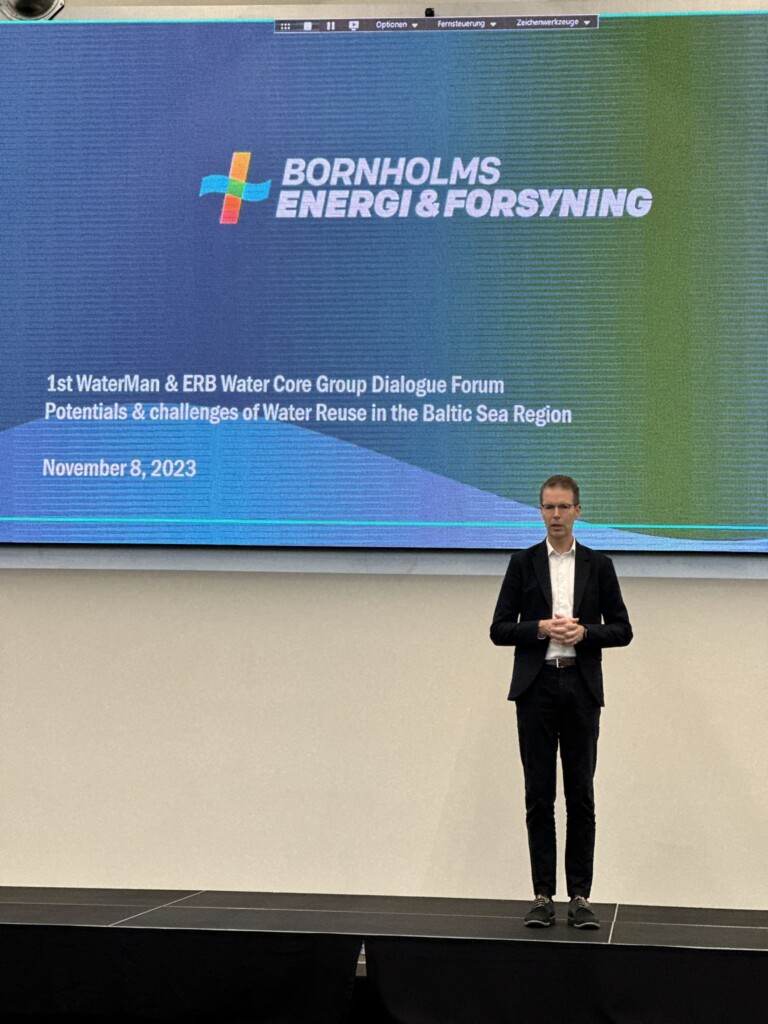
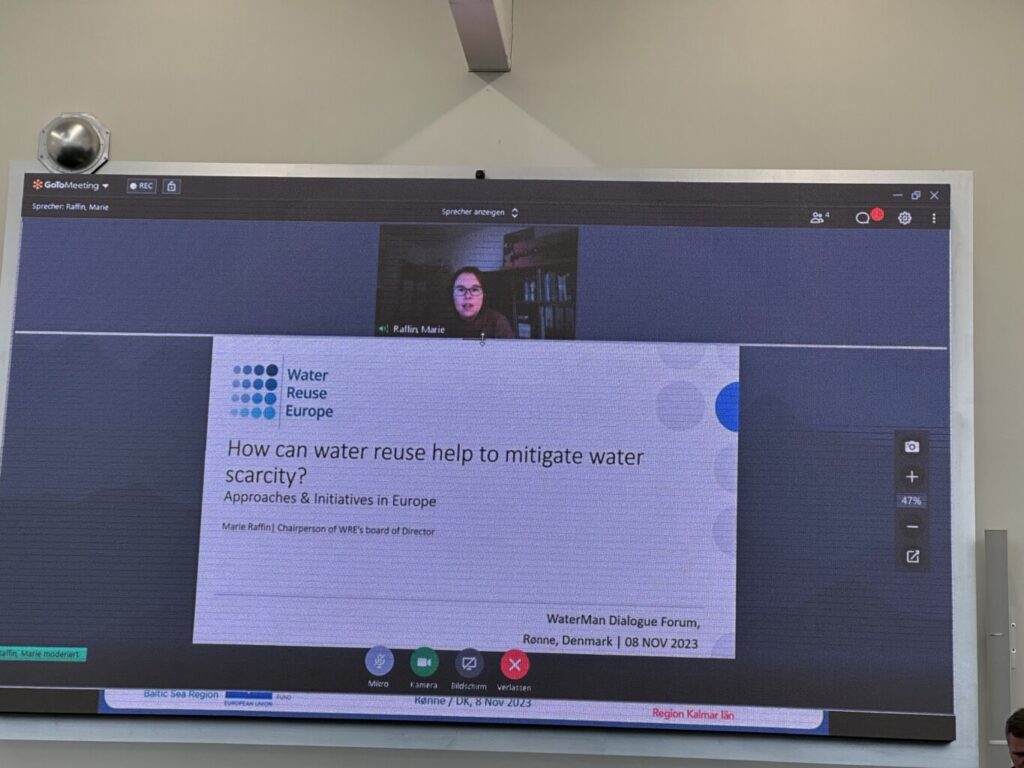
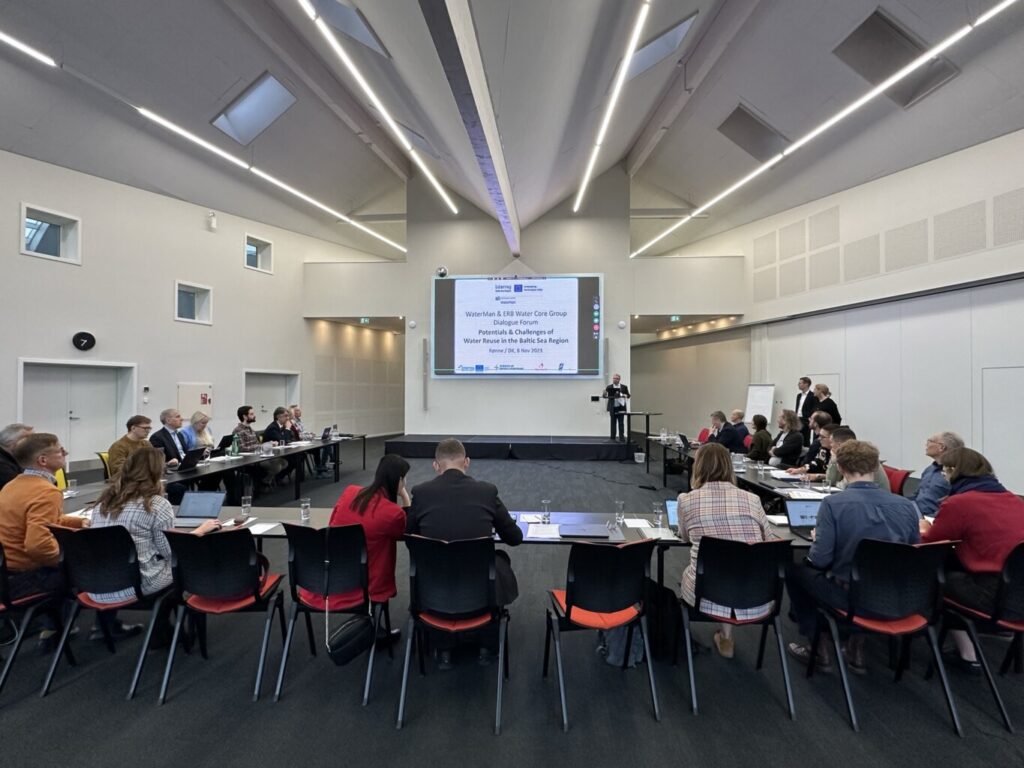
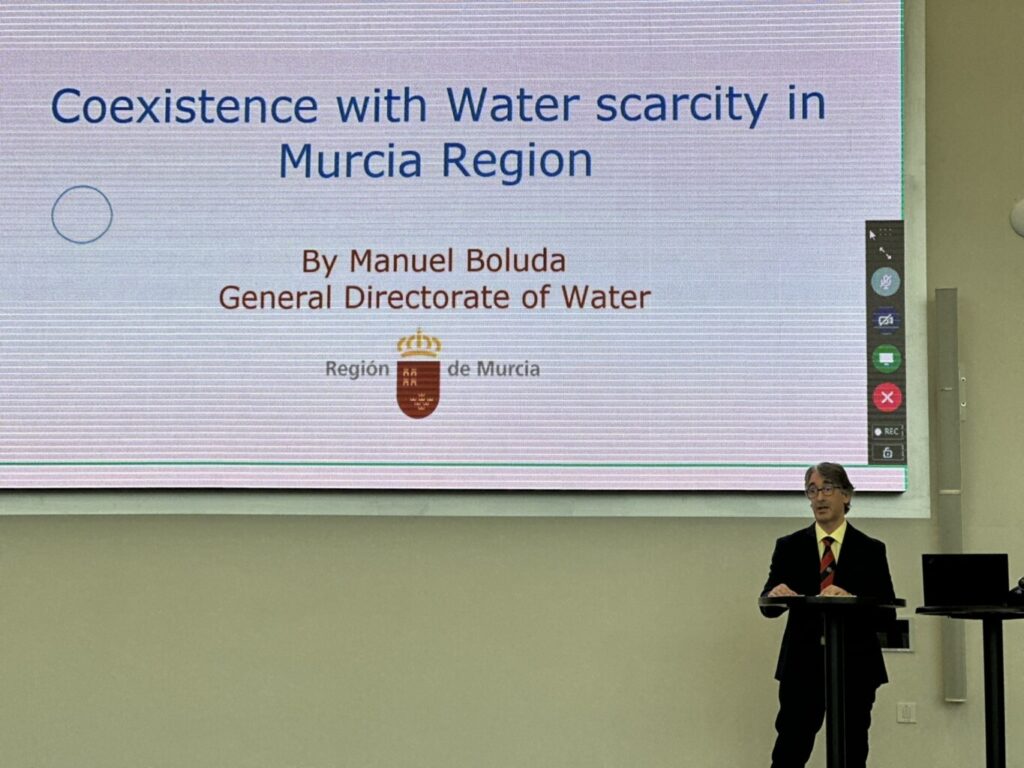
Also invited were people representing other projects in the field of water:
- Klara Ramm – ReNutriWater
- Giacomo Messsina – Nursecoast-II
- Manuel Boluda Fernandez – Aquares
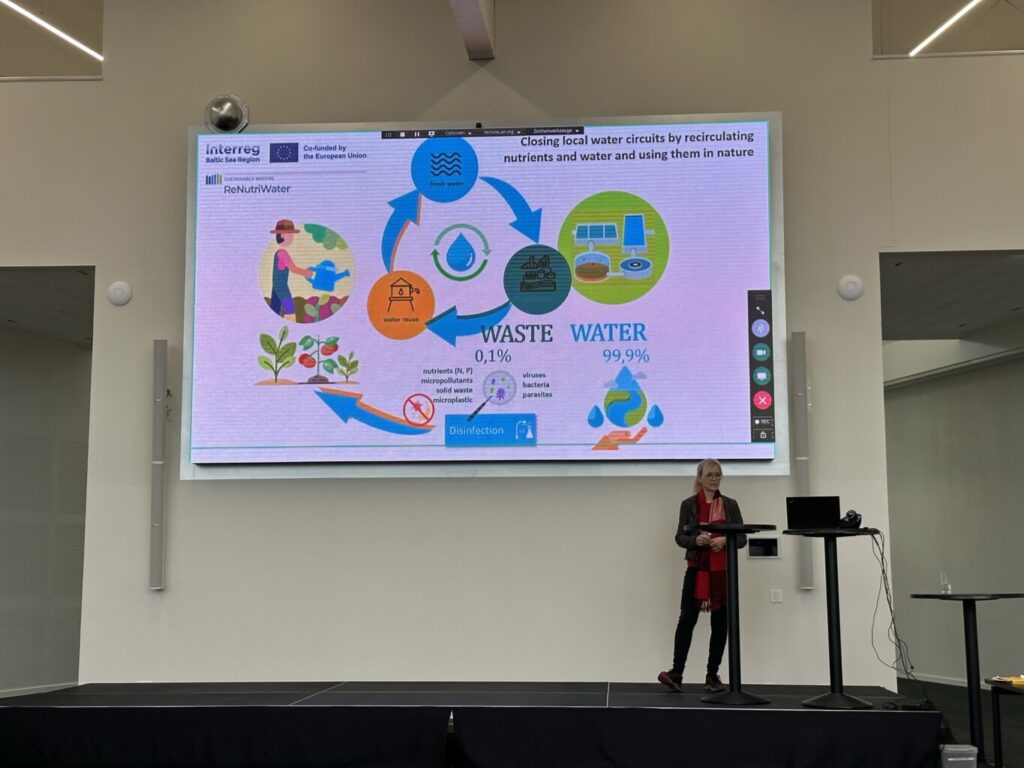
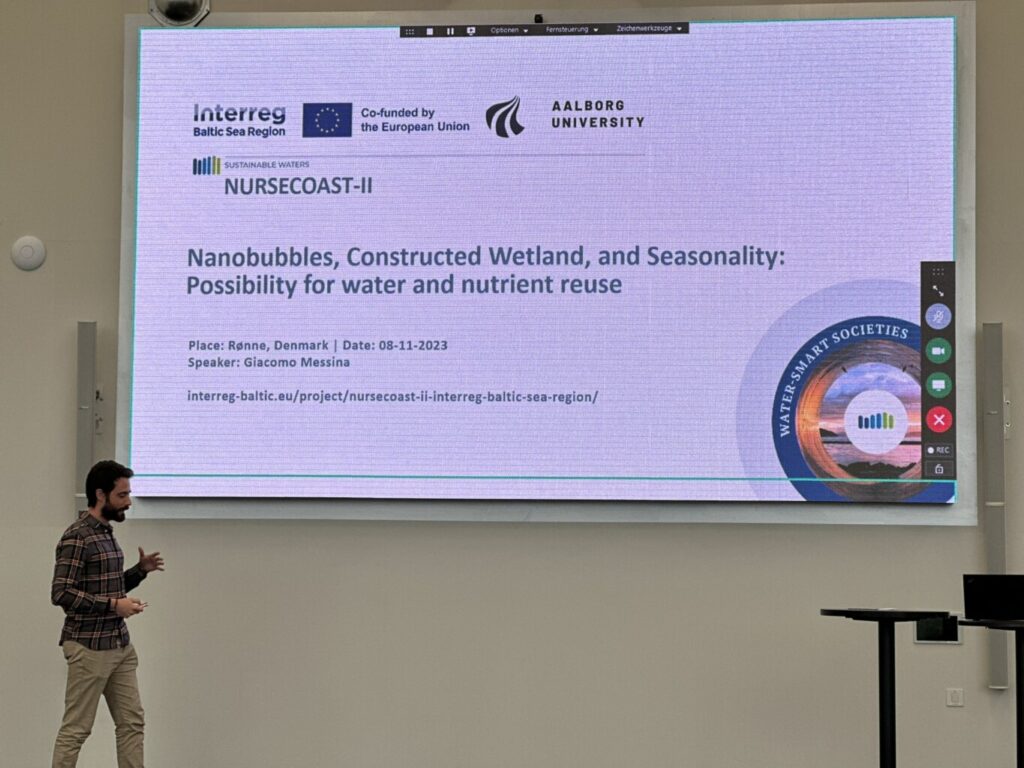
At the end of the day, a panel was held to dialogue and discuss the challenges of water reuse. The conclusion is that if we will work together we can make a change.

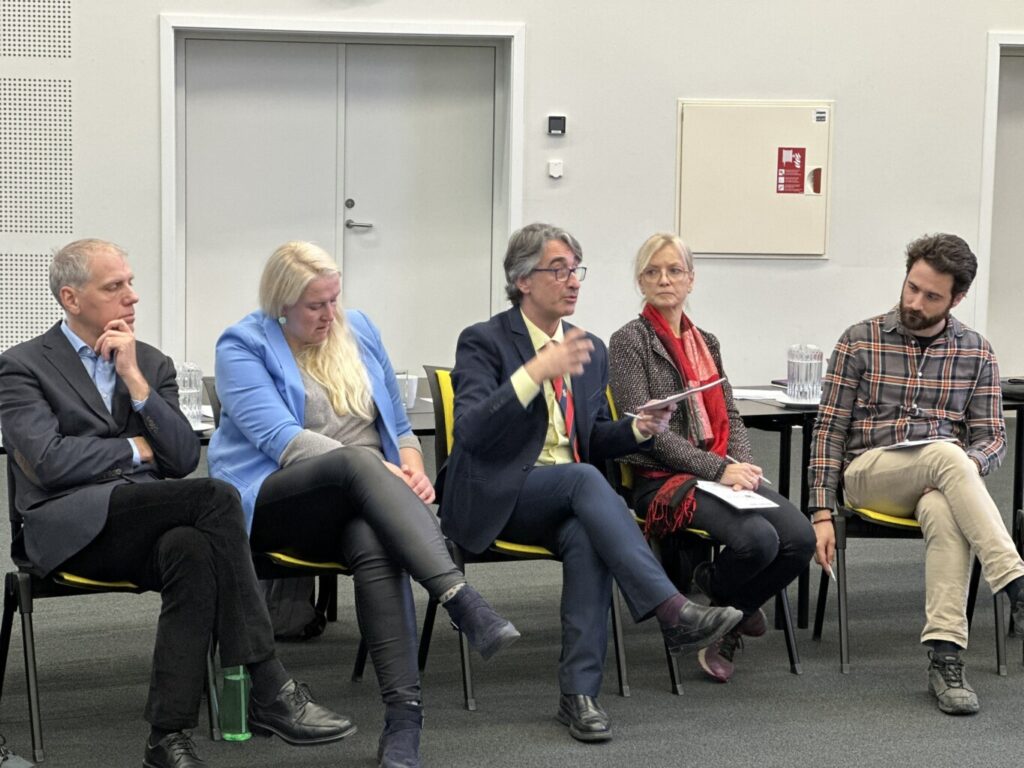
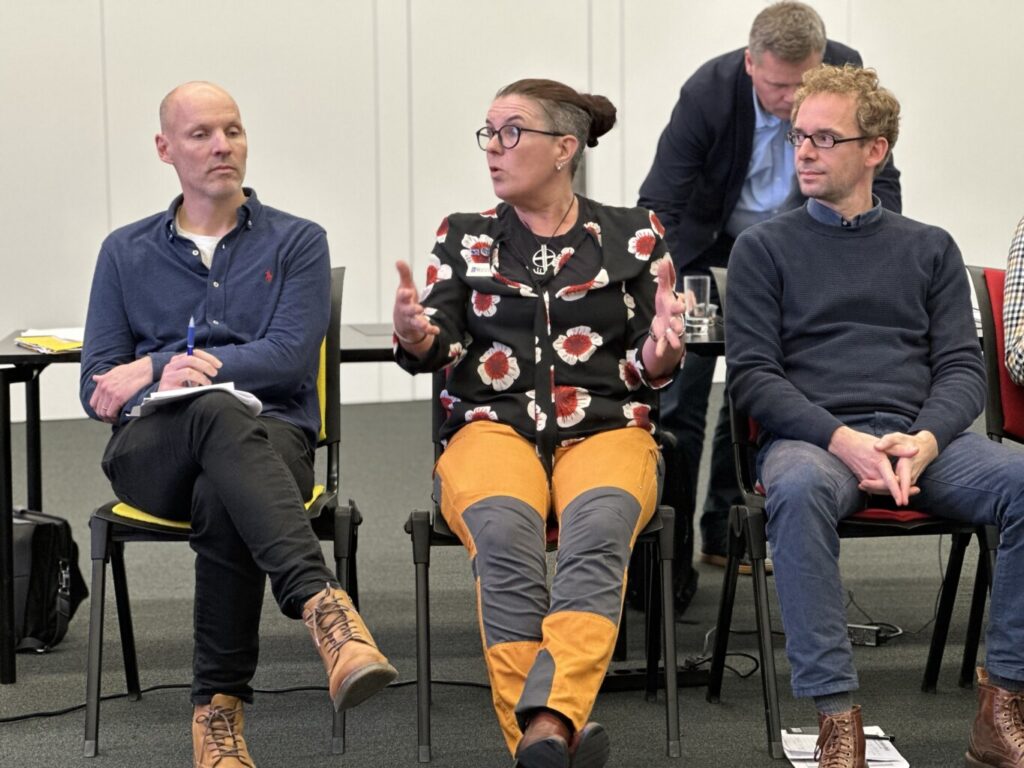
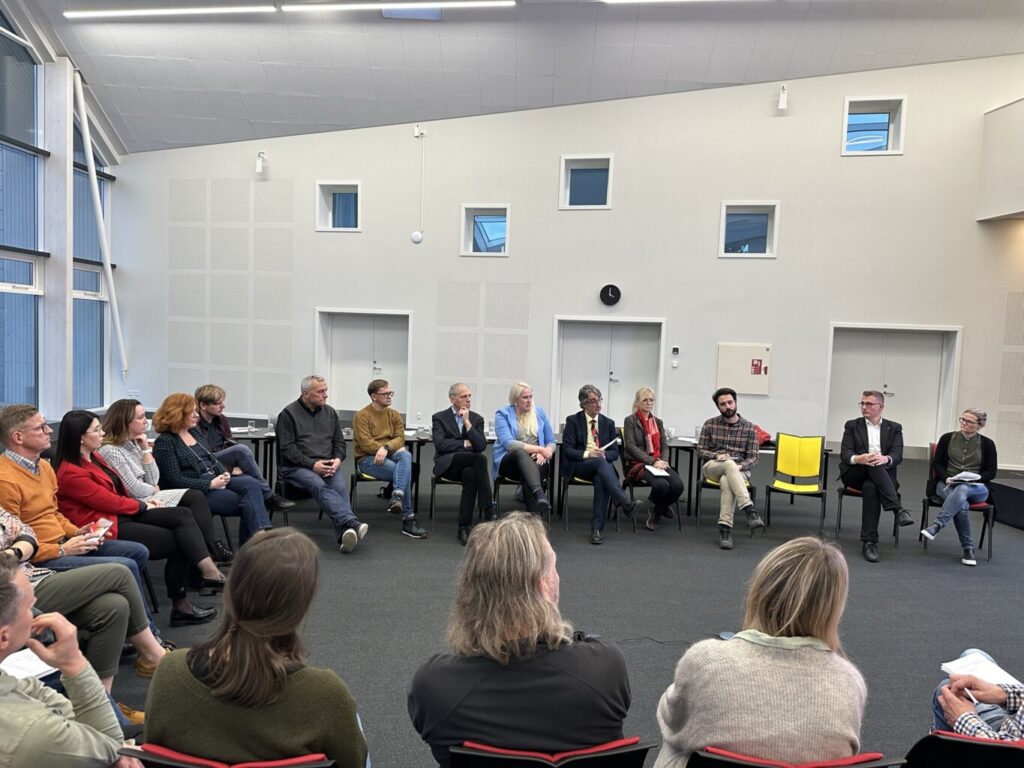
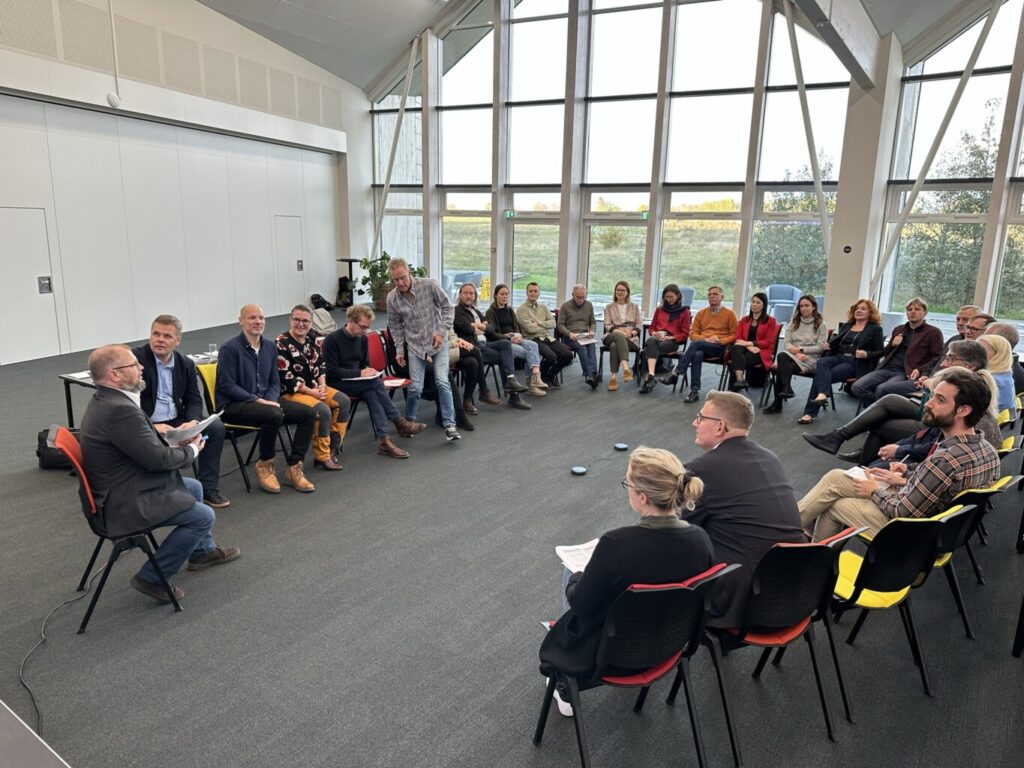
9th of November
The last day focused on local and regional model strategies for water reclamation. Each of the partners with pilot activities is preparing such a strategy, which later will be presented to residents and city officials.
Each partner has different stories and water issues they face on a daily basis that’s why the strategies must be adapted to local conditions.
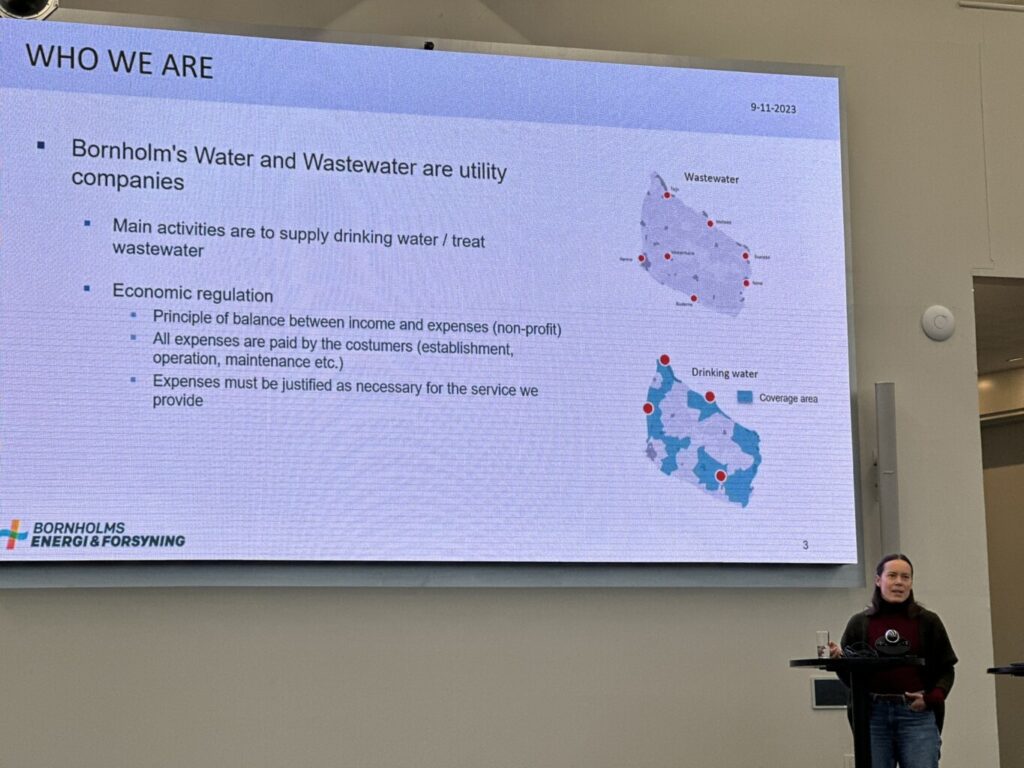
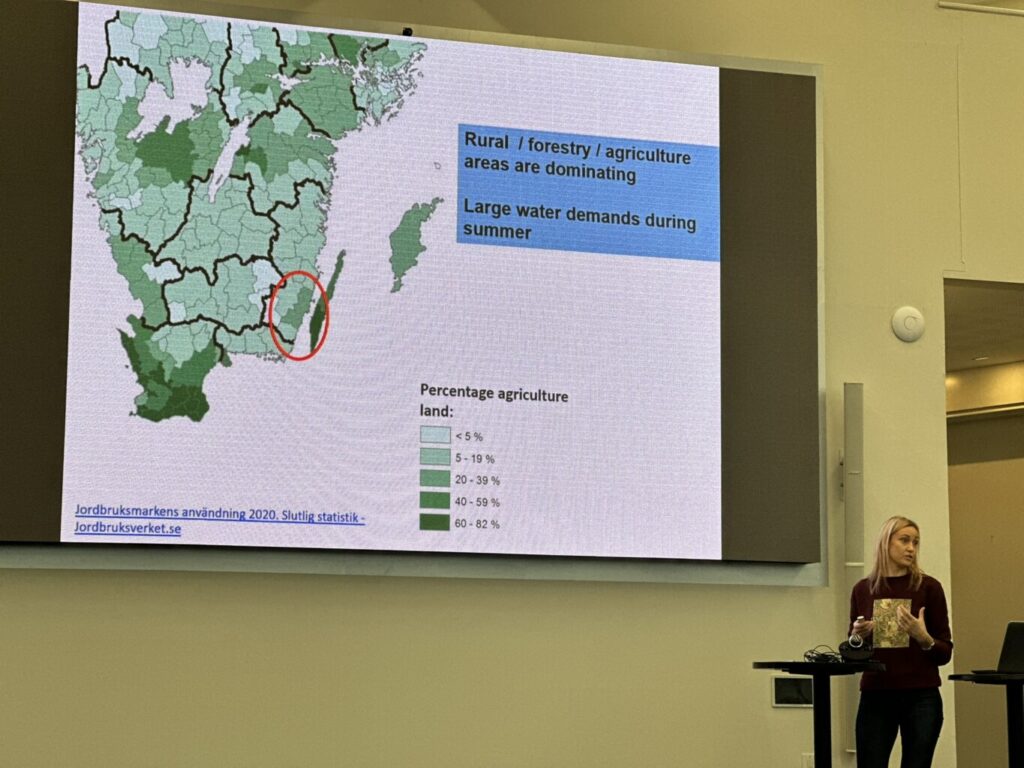
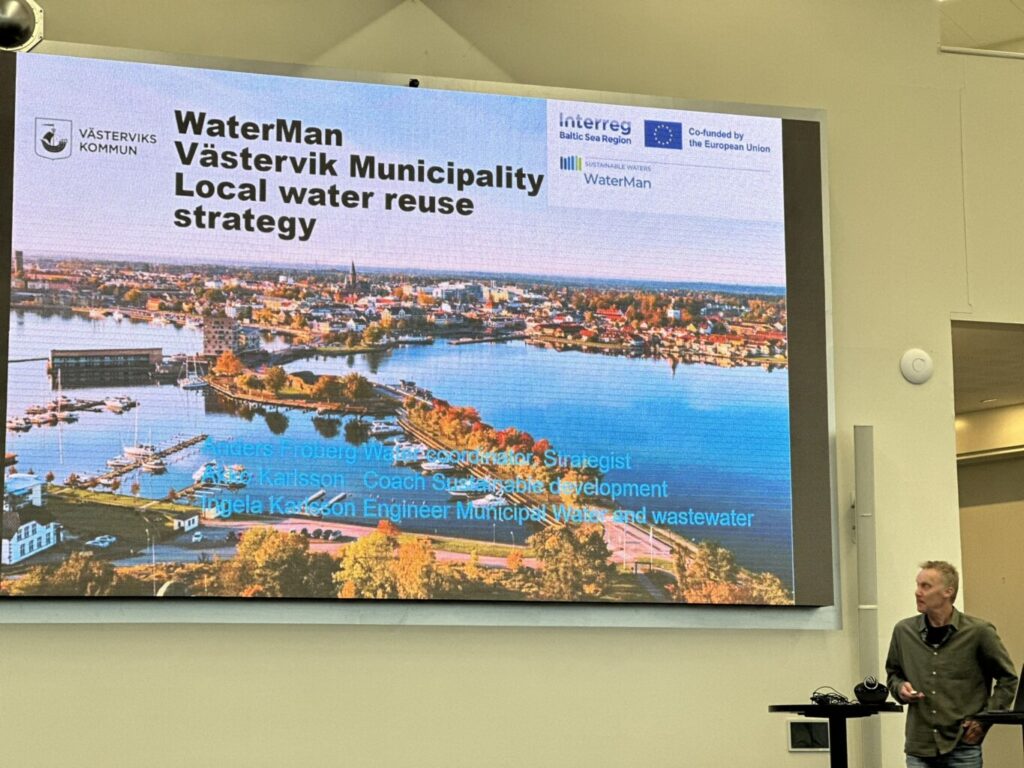

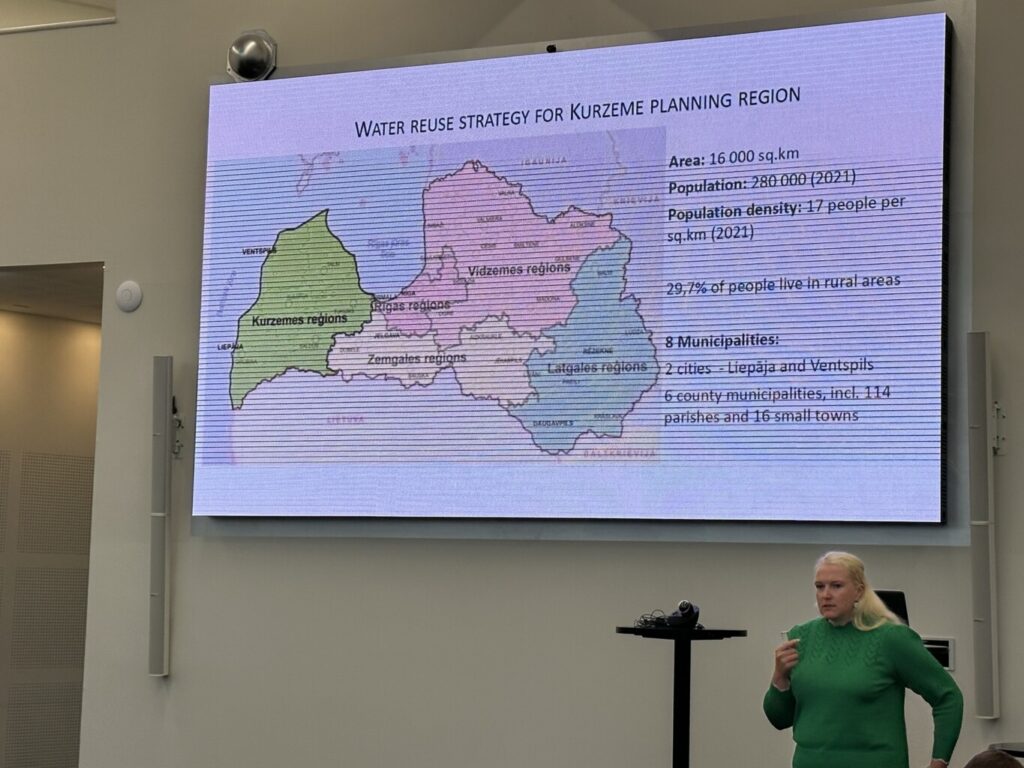
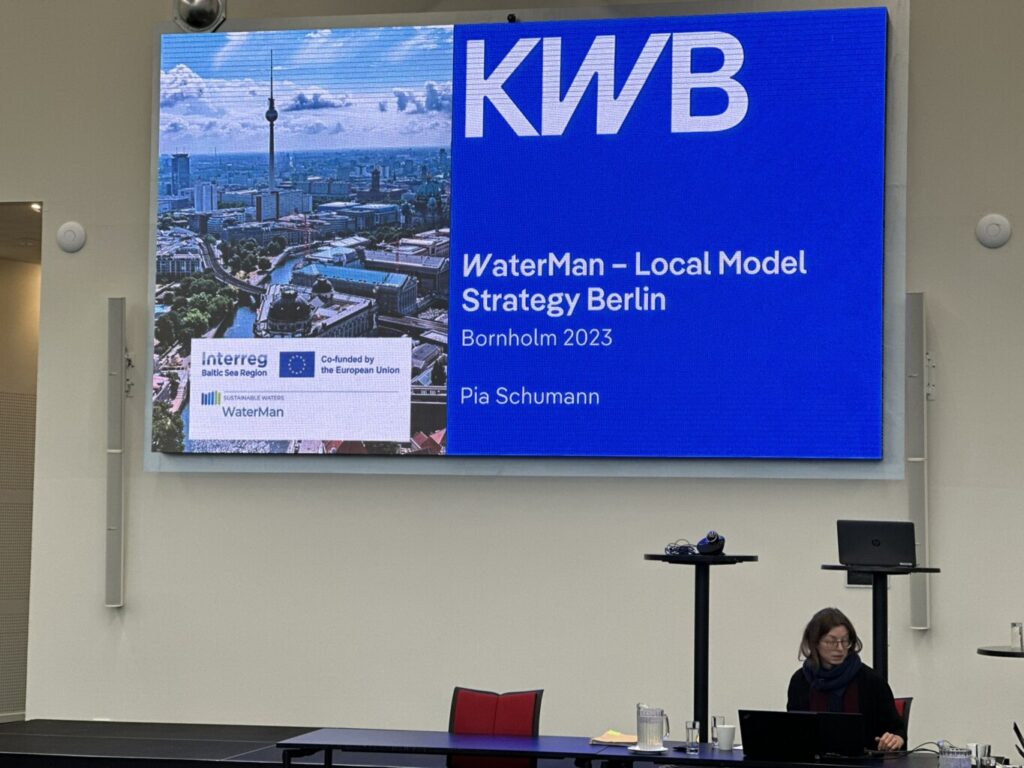
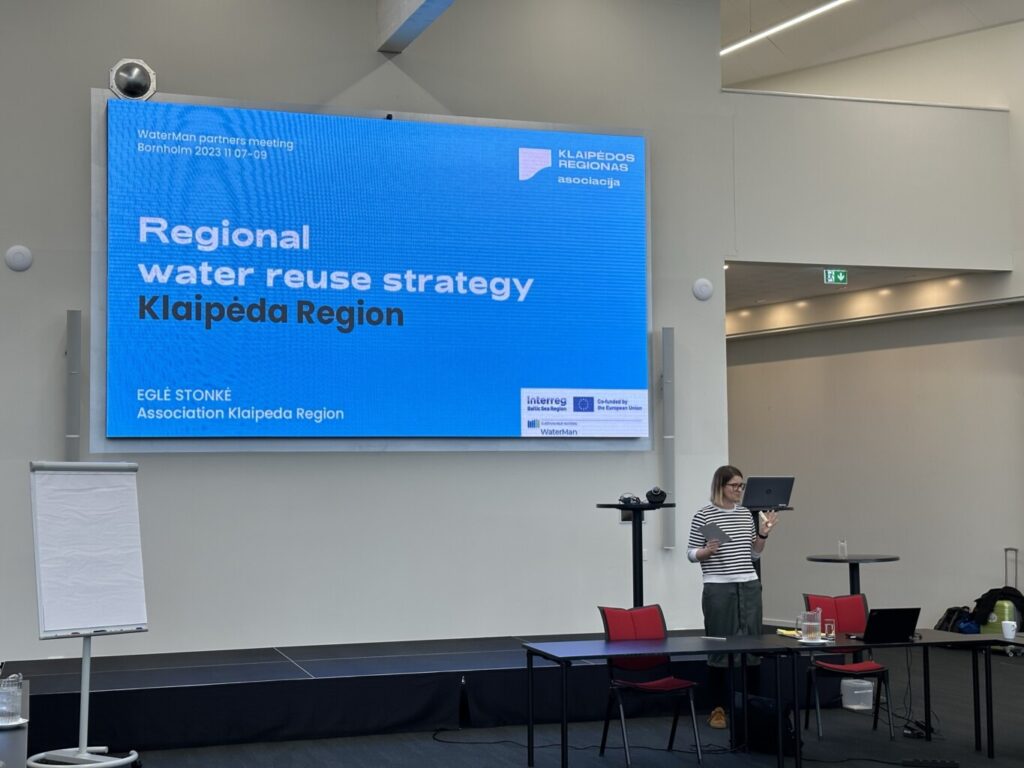
The final part of the agenda was the dissemination of information and raising awareness among politicians and residents on the topic of water reuse. The division of responsibilities was made and it was mentioned what are the planned next activities related to the joint promotion of the project.
The next physical meeting of the partners is planned for March 12-14, 2024 in Braniewo. The event will follow the same format as the current one, to which experts, specialists and politicians will be invited.





